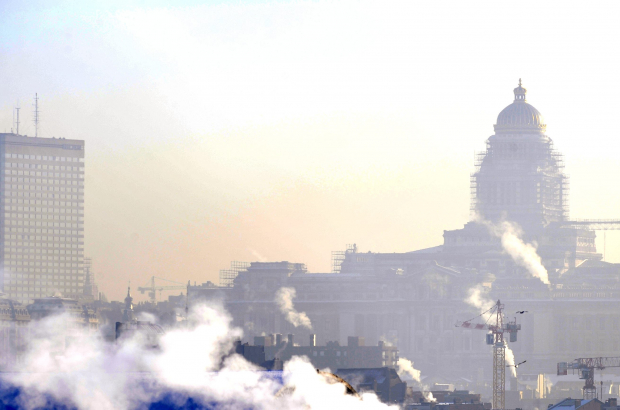- Daily & Weekly newsletters
- Buy & download The Bulletin
- Comment on our articles
New participatory air quality study launched in Brussels
Universities, NGOs, public bodies and media partners launched the largest Brussels air quality measurement study to date on Saturday.
This participatory science project, called CurieuzenAir, aims to mobilise families, businesses, associations and schools to map air pollution at some 3,000 sites in the Brussels-Capital Region. Its launch coincides with preparations for EU Green Week 2021.
The initiative is part of the Brussels Clean Air Partnership, a collaboration that began in October 2020 between Bloomberg Philanthropies, the government of the Brussels-Capital Region and Brussels Environment, to encourage local partners to improve air quality through innovation, research and monitoring, citizen engagement and educational programmes.
"This is the largest participatory science project on air quality ever conducted in Brussels," say the study's initiators, which include the Free University of Brussels, the University of Antwerp, Brussels Environment, urban sustainability movement The Bral, plus the daily newspapers Le Soir and De Standaard and the Brussels media company BRUZZ.
CurieuzenAir is distributing 3,000 easy-to-install measuring kits to Brussels citizens, who can register on the study website until 13 June. The kits will measure the concentration of nitrogen dioxide (NO2), a gas harmful to health and the environment, which is emitted by vehicles with combustion engines, among other things. They consist of a simple panel which is installed on a window facing the street. Two test tubes act as the "nose" of this panel which calculates the concentration of nitrogen dioxide in the air outside.
Testing will run for four weeks from the end of September. The data will be collected under the guidance of scientists from the University of Antwerp, while the socio-economic analysis will be led by the Free University of Brussels.
"The data collected will provide more reliable information for air pollution control policies and Brussels Environment will be able to use it to optimise air quality models," the organisers say.
The official network of air quality monitoring stations in Brussels is often accused of not taking sufficient account of the most polluted areas of the capital.
Alain Maron, the Brussels minister for climate transition, environment, social action and health, said he was "delighted that so many Brussels residents have the opportunity to carry out air quality measurements. CurieuzenAir's data will provide detailed knowledge on air quality throughout Brussels, as well as its health effects. They will help us develop a scientifically sound policy to reduce air pollution and improve the quality of life of people who live and work in Brussels or visit the capital."
If the Brussels pilot project is successful, the organisers aim to reproduce it in other European cities.


















